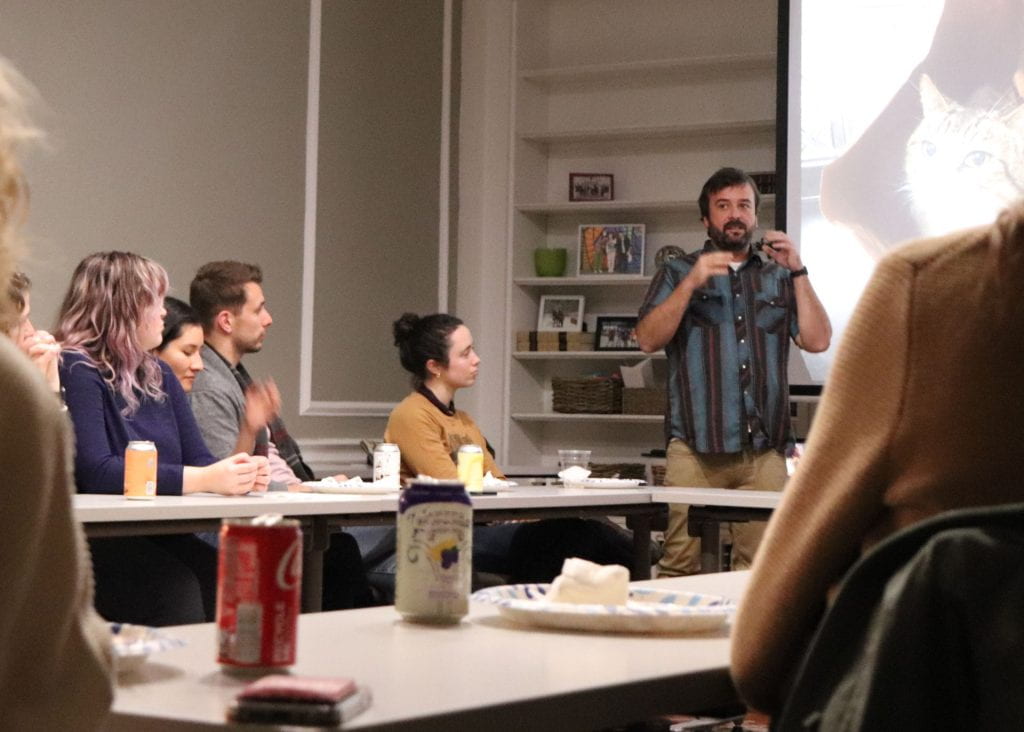
On Monday, Jan. 30, the Graduate Impact Forum welcomed Chris Weatherly, a Ph.D. Candidate in Social Work at the Brown School. Weatherly’s research focuses on the intersection of mental health and climate change, building on his work with farmers, victims of natural disasters, and livestock and wildlife veterinarians.
Joined by more than 30 WashU graduate students, the event was facilitated by Bethany Copeland, a second-year MSW student at the Brown School and Engage Democracy Fellow at the Gephardt Institute. Together, the two discussed Weatherly’s research on the intersection of mental health and climate change.
Weatherly has served as a mental health clinician and worked in mainly severe acute psychiatric environments. He lived in New Orleans when Hurricane Katrina hit the city, and was one of countless people affected by the disaster. In navigating the aftermath, Weatherly witnessed intercommunity disparities in accessing relief resources from organizations such as the Federal Emergency Management Agency (FEMA), and how this impacts citizens’ mental health.
At the Forum, one student asked Weatherly what goes into communicating with communities regarding mental health, and he offered insight from his own experiences. He first mentioned the need to understand how pre-existing inequities intersect with new challenges presented by large-scale disasters, especially how the latter may exasperate the former. Weatherly also noted that we need to keep in mind how these conversations differ based on the culture of the particular community. For example, Weatherly noted instances in which mental health is rarely discussed in the first place, and the type of push-back he has received in response.
The night opened a lot of moments for candid conversation on navigating the world of social work. Regarding climate change, Weatherly admitted his frustrations with the topic’s politicization in today’s media. Despite this, however, he credited his focus on person-centered approaches in his research and how this encouraged him in his work.
“In following your passion, follow your heart, and in that process, engage in a lot of introspection,” Weatherly said of his hopes for students interested in environmental activism.
After completing his doctorate, Weatherly plans to take a position at the University of Georgia.